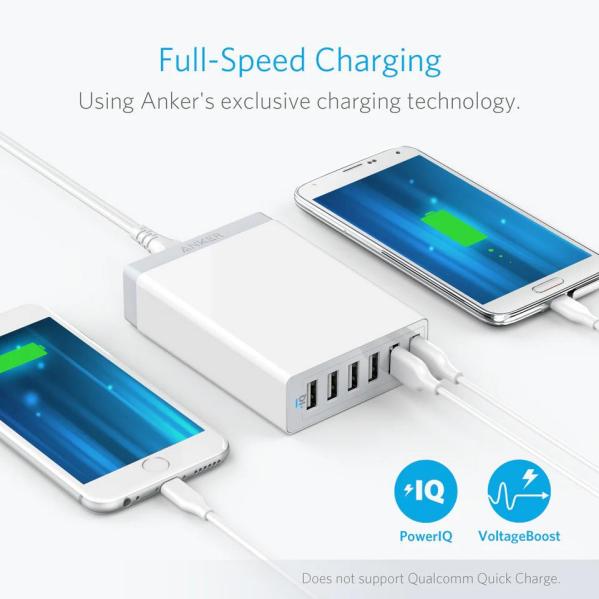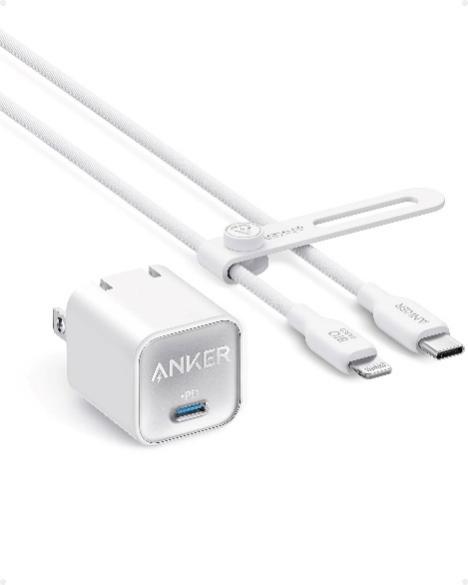Everybody needs their phones more than anything else to help them get through the day. Nowadays, it's inevitable that you'll need to charge your mobile device, no matter how inconvenient it may be. Especially if you aren't sure which charger your device needs, this is something to keep in mind. If you aren't technologically savvy, don't stress about it! Find out more about the different USB chargers available and how to determine which one is most suited to your needs by reading our comprehensive guide.
Types of Phone Chargers
The Micro-USB connector is among the most prevalent types of charging cables. It's found on a wide variety of mobile phones and tablets, as well as other electrical gadgets like cameras and keyboards. One type of USB used by both flash drives and memory sticks lets data be read when the device is disconnected from a computer. Phone chargers of this type are like USB-A cables in that their ends can only be placed into a port if they conform to the port's specifications. This means you should be careful not to inflict any damage.

It used to be common practice to include a mini-USB connector on compact electronics like mobile phones, cameras, and the like so that they could be easily connected to personal computers and other electronics. The mini-USB connector has since supplanted the mini-USB connector as the preferred method of connecting devices to power. As a result, there should be less cable clutter.
One of the oldest types of phone chargers is the USB-A type. The most prevalent use for it is in electrical outlets and USB ports. The USB-A end of the adapter can be plugged into a computer's USB port to supply power. Remember that there is a specific order in which USB-A cables must be placed into the port. In most cases, the USB symbol on top will indicate which side is up while using the device.
Only USB-A chargers are compatible with USB-A ports, which are becoming increasingly rare on modern host devices.
USB-B connectors are much less common than the many other types of phone charging cables. It's common to see a USB port with four pins on peripherals like printers, scanners, external hard drives, and more. The port has two rows of pins that serve to link the port to your computer and your device. While the USB-B port can be used to transfer data to and from a computer, it can also be used to charge devices like smartphones and tablets.
USB-C cables are the newest technology for charging portable electronics including laptops, tablets, and smartphones. Unlike standard micro-USB and mini-USB adapters, this one can be plugged in any way around. That means you can use it without worrying about which end goes in first. USB-C charging adapters, which are a more efficient type of Android charger (among other sorts), may charge your device at a rate that is far faster than earlier ways. The best thing is... The fact that a cable exists to convert USB-C to Lightning means it's not limited to Android gadgets alone.
Apple designed a new form of apple charger called the Lightning charger to replace the 30-pin dock connector used by the original iPhone 4, and later iPhone 3. A USB Type-C connector and an 8-pin Lightning connector are now included in the Lightning charger's redesigned model. These adapters are compatible with a wide variety of Apple devices, including iPhones, iPads, and iPods, and may be used to power and charge additional devices including monitors, PCs, USB batteries, cameras, and more. Included in this is the capacity to charge the devices. So that your devices that only have USB-A connections don't become obsolete, you may also buy a cable that converts USB-A to Lightning.

Conclusion
That pretty much says it all—a comprehensive look at the many mobile device chargers available today. The process of charging your phone involves far more than just connecting it to a power source, so keep that in mind. Using one of the many available phone chargers and cords namely the micro-USB, mini-USB, USB Type A, USB Type B, USB Type C, and Lighting chargers will help you get the most out of your device's battery life. We hope that the information we prepared will help you find the solution that meets your needs.
